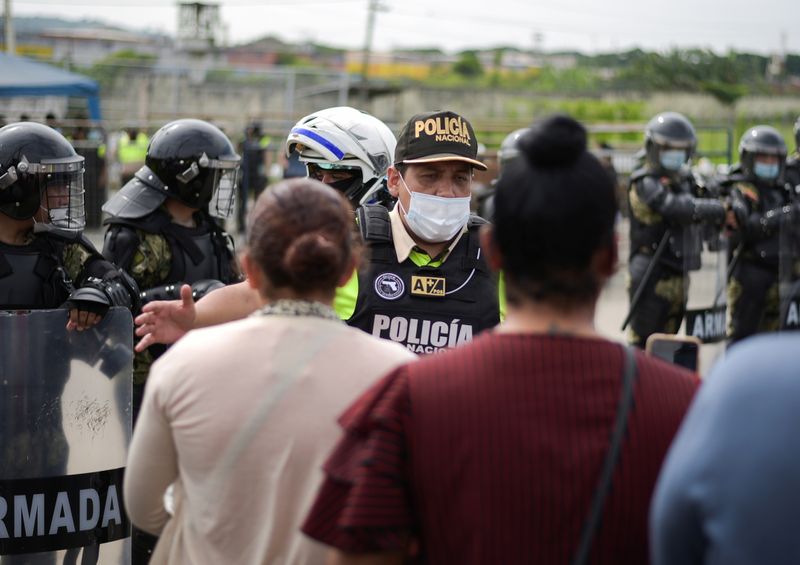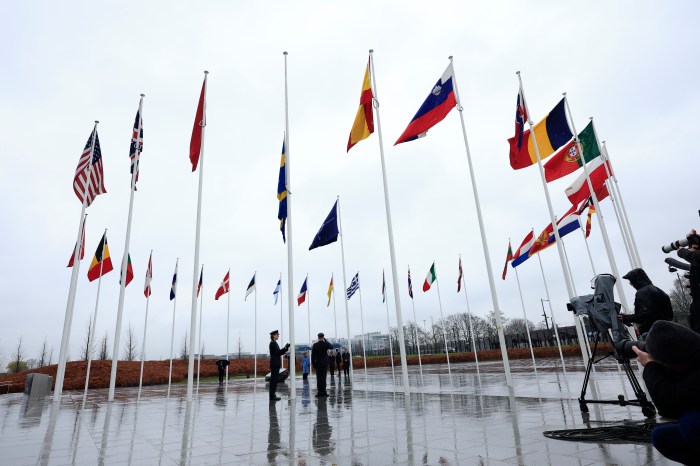QUITO (Reuters) – Ecuadorean officials said on Monday prison riots that left 79 inmates dead last week were linked to organized transnational crime, and said the situation in its penitentiary system remained “tense.”
Last Tuesday’s riots, which left an additional 19 people wounded, were among the bloodiest incidents in the history of the Andean country’s penitentiary system and underscored the problems of overcrowding and underfunding that plagued the system.
Authorities initially attributed the riots to rivalries between local gangs. Testifying in front of the National Assembly, Interior Minister Patricio Pazmino said on Monday that those rivalries were linked to international groups disputing for control over Ecuador’s drug trade.
“We are not talking about a simple fight between criminal groups in prisons,” Pazmino said. “We are talking about a confrontation between criminal groups with international contacts over illegal markets in the country.”
Without naming specific groups, Pazmino said rivalries between local groups took on an increasingly international dimension in 2017, after the demobilization of the FARC rebel group in neighboring Colombia through a peace deal with the government put an end to decades of civil war.
Authorities said there have been new attempted riots in the jails since last week’s incidents. The most recent took place on Monday morning in the central city of Latacunga, where prisoners held five guards hostage, but the SNAI prison authority said the situation was controlled several hours later.
“The situation is still tense and complicated,” Edmundo Moncayo, SNAI’s director of social rehabilitation.
Authorities over the weekend temporarily transferred some prisoners to other facilities due to the risks they could be victims of violent acts in the future.
The government has said that jails are overcrowded by some 30%, and that a lack of resources and staff has contributed to confrontations between the country’s 38,693 inmates.
(Reporting by Alexandra Valencia; Writing by Luc Cohen; Editing by Marguerita Choy)



















